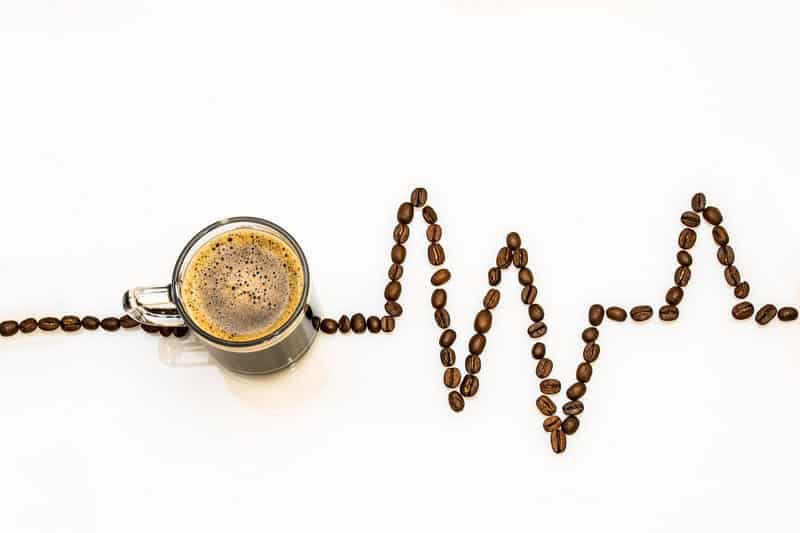If you are suffering from irritable bowel syndrome, you’re probably wondering whether or not drinking coffee can help you poop. Some research suggests that caffeine can help you poop faster by relaxing the anal sphincter and stimulating the distal colon. But, there are also some drawbacks. Caffeine is associated with irritable bowel syndrome, a condition where the body experiences frequent trips to the restroom. It also increases the production of gastric acid, which makes it difficult to pass waste.
Caffeine relaxes the anal sphincter.
One of the most common side effects of drinking caffeine is the urge to defecate earlier than usual. If the anal sphincter can relax voluntarily, this can result in a shorter time to the bathroom. Caffeine may also lower the sensory threshold for defecation. However, if you do not drink coffee or soda, you should avoid caffeine altogether.
The anal sphincter is a muscle that maintains the integrity of the rectum. It relaxes and contracts with a bowel movement. As we age, our anal sphincter’s tone starts to wane. The rectum has to stretch to hold a stool until we reach the bathroom to prevent soiling. However, this stretch may become scarred and cause fecal incontinence.
The anal sphincter is made up of several muscles that surround the anal canal. The internal anal sphincter is the inner muscle that relaxes when bowel movements are complex. The anal fissure pulls apart when this muscle spasms, causing a painful spasm. The spasm also damages the small blood vessels in the anal canal, making the healing process slower.
It stimulates the distal colon.
Studies have shown that consuming coffee can trigger bowel movements. Studies have found that about 30 percent of people will poop after drinking coffee. This isn’t surprising since coffee has a long half-life, and the effects of coffee start stirring the colon 15 minutes after ingesting it. According to one study, coffee stimulates the distal colon within four minutes, but the results won’t last for more than half an hour.
Researchers have determined that drinking coffee helps speed up your bowel movement by stimulating the distal colon. This will stimulate muscle contractions in the colon, the last part of the digestive tract. This will help you poop faster because coffee stimulates the distal colon, pushing waste out of the body more efficiently. This stimulation will help you poop more often, making you feel more energetic.
A 1998 study found that coffee can have a mechanical effect on the distal colon, and caffeine is likely the culprit. It also induces a gastrocolic reflex, signaling the colon to move the stools. This is thought to result in a need to poop, but scientists haven’t found a definitive reason why coffee helps people poop.
While caffeine is the culprit, scientists have found that decaf coffee is also a laxative and can induce bowel movements. Some researchers have shown that caffeine does not cause coffee’s laxative effects. Instead, coffee has been shown to increase the frequency of bowel movements in people suffering from constipation. In addition to being a diuretic, coffee also helps maintain fluid balance in the body.
It causes irritable bowel syndrome.

Drinking coffee with milk may contribute to the symptoms. Milk contains lactose, a FODMAP. People with IBS should avoid milk or use plant milk that contains no added sweeteners. Drinking coffee with milk or cream can contribute to dysbiosis. However, drinking coffee without milk may have fewer side effects, such as constipation and diarrhea. If your condition is chronic or severe, it is recommended that you consult a functional dietitian nutritionist.
While coffee is not high in FODMAPs, it can still cause IBS symptoms. In addition to causing cramping and indigestion, caffeine can also exacerbate heartburn symptoms. If you must drink coffee with milk or natural sweetener, cut it down to reduce the risk of nausea. If you suffer from IBS and drink coffee often, consult a doctor immediately. Diagnosing the cause of IBS is crucial in managing your symptoms.
Some studies show that caffeine can increase the symptoms of IBS. However, the results of these studies did not establish a clear relationship. Instead, coffee consumption is not associated with a link between BMI and IBS symptoms. However, coffee consumption may have some beneficial effects for those who suffer from IBS. This is because caffeine increases the production of stomach acid. This increased gut motility is problematic for people with diarrhea.
A food allergy or stomach problem can also trigger IBS symptoms. Many people with IBS have sensitive guts and are more susceptible to stress, anxiety, and food triggers. Although there is no definitive way to identify the exact cause of IBS, a doctor can prescribe an appropriate diet for you to overcome the symptoms and improve your health. Your doctor may also suggest a food diary to determine the exact foods and drinks causing your IBS.
It increases gastric acid production.
Research shows that drinking coffee can boost your bowel movements. It increases gastric acid and increases the rate at which your stomach empties. It also increases the production of digestive hormones like gastrin. These hormones help move waste out of your body faster. However, how does coffee improve this process? We can’t know for sure, but it may have something to do with your colon health.
First, coffee contains melanoidins, a compound formed during the roasting process. These compounds contain dietary fiber, which can help keep you regular. It also stimulates gastric acid production, which aids digestion and helps prevent constipation. The caffeine in coffee may also stimulate the production of the digestive hormone cholecystokinin. This hormone will help you pass the waste to keep your body in top shape.
A recent study by the University of Texas Medical Branch in Galveston, Texas, found that drinking coffee could help you pass more waste. Researchers compared the amount of caffeine in coffee drinkers to their food intake. Coffee increases gastric acid production by increasing the secretion of cholecystokinin and gastrin. These chemicals increase the rate at which food moves through the gut. This leads to a more active colon.
A recent study at Digestive Disease Week in 2019 found that coffee can increase gastric acid production and improve bowel movement. However, the effect was not as strong as the researchers thought. The findings suggest that coffee is not the culprit in making our poop. Caffeine may be the culprit, but other factors are more important. In addition to caffeine, coffee increases GI activity in the digestive tract.
Drinking coffee before meals is a proven way to boost the digestive process. The acidic nature of coffee triggers the gastrocolic reflex, which stimulates the muscles in the intestines to contract. This action pushes old food out of the digestive tract and makes way for the new one. Coffee triggers this reflex, so the sooner you consume it, the sooner you can poop.





